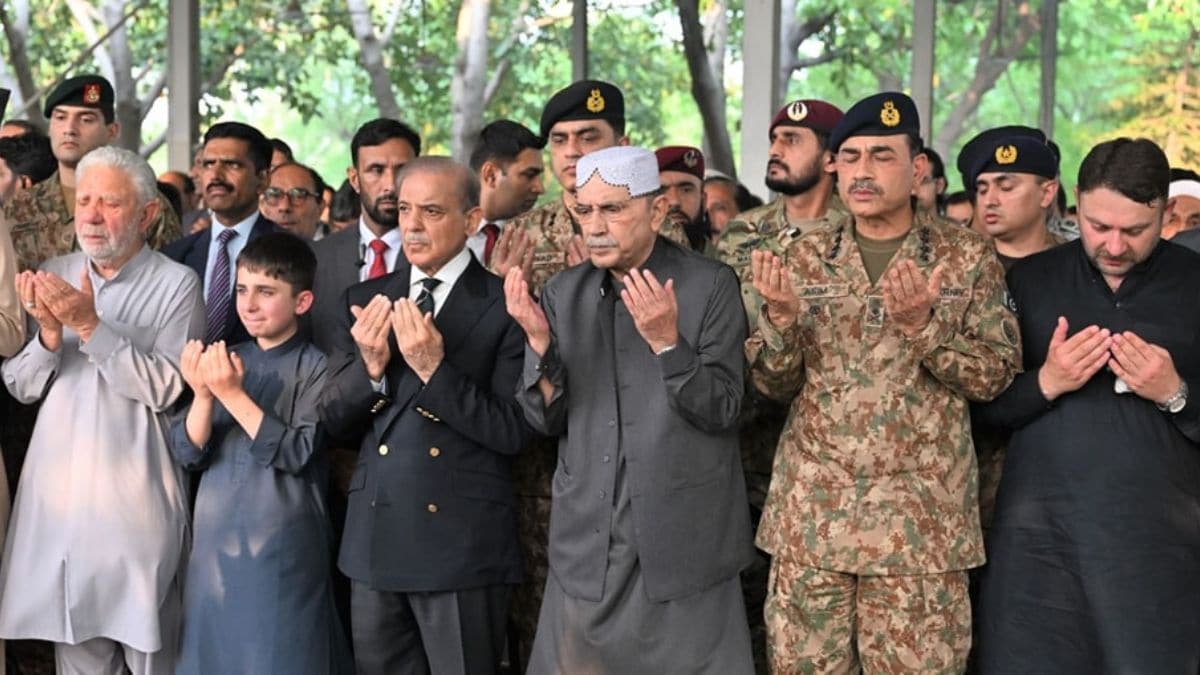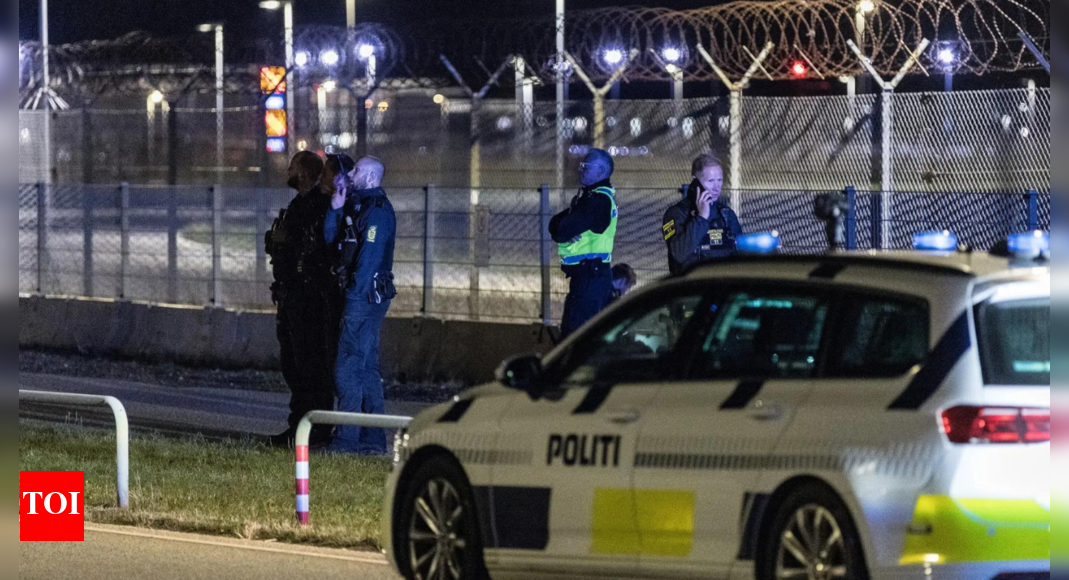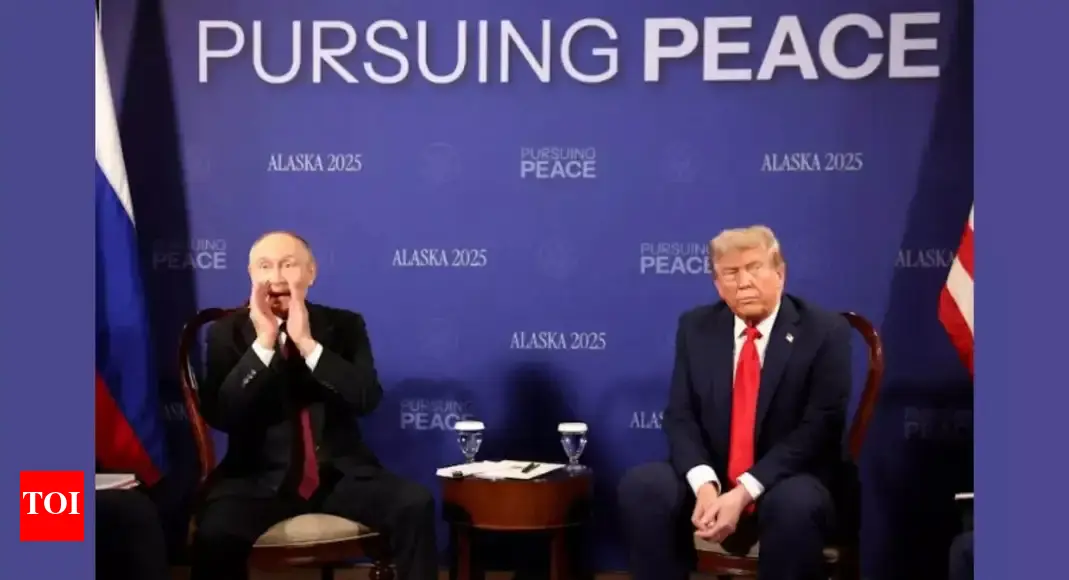Is there a divide in Pakistan after
Operation Sindoor?
As Prime Minister Shehbaz Sharif thanked the US for the ceasefire on Saturday, the Pakistan Army sent a swarm of drones across the border to attack India.
Pakistan civilian governments and its military have historically been at odds. The country has been seen long periods of military rule since Independence.
But what happened? What do we know? Who is really in charge in Pakistan?
Let’s take a closer look
What happened?
On Saturday, US President Donald Trump took to social media to
announce a ceasefire
between India and Pakistan.
While the US tried to take credit for the development, Indian officials insisted no third party was involved.
On Saturday, Sharif took to Twitter to praise Trump.
Catch India-Pakistan ceasefire LIVE updates here
“We thank President Trump for his leadership and proactive role for peace in the region. Pakistan appreciates the United States for facilitating this outcome, which we have accepted in the interest of regional peace and stability,” Sharif wrote on X.
“We also thank Vice President JD Vance and Secretary of State Marco Rubio for their valuable contributions for peace in South Asia. Pakistan believes this marks a new beginning in the resolution of issues that have plagued the region and prevented its journey toward peace, prosperity and stability,” he added.
Pakistan violates agreement
But Pakistan quickly
violated the understanding
between the countries.
Jammu and Kashmir Chief Minister Omar Abdullah took to X on Saturday night to state that explosions were being heard across Srinagar.
“This is no ceasefire. The air defence units in the middle of Srinagar just opened up,” Abdullah added.
Gujarat Minister of State for Home Harsh Sanghavi said several drones had been spotted over Kutch district.
Foreign Secretary Vikram mystery
confirmed the development
at a briefing.
“For the last few hours, there have been
repeated violations of the understanding
arrived at earlier this evening between the Directors General of Military Operations of India and Pakistan. This is a breach of the understanding arrived at earlier today. The armed forces are giving an adequate and appropriate response and we take very very serious notice of these violations. We call upon Pakistan to take appropriate steps to address these violations and deal with the situation with seriousness and responsibility. The armed forces are maintaining a strong vigil on the situation. They have been given instruction to deal strongly with any instances of repetition of the violations of the borders along the International Border as well as the Line of Control,” Misri said, as per The Hindu.
Pakistan, however, remained insisted that it “remains
committed to faithful implementation
” of the ceasefire.
“Pakistan remains committed to faithful implementation of ceasefire between Pakistan and India, announced earlier today. Notwithstanding the violations being committed by India in some areas, our forces are handling the situation with responsibility and restraint. We believe that any issues in smooth implementation of the ceasefire should be addressed through communication at appropriate levels. The troops on ground should also exercise restraint,” the Pakistan Foreign Ministry said.
Who is really in charge?
That remains the question.
Experts say the conflict provides a chance for Munir to take complete control of Pakistan – if he already hasn’t.
A piece in New Indian Express pointed out that General Muhammad Zia-ul-Haq is Munir’s idol.
Zia, remember, codified the doctrine of “bleeding India by a thousand cuts.”
“Gen Munir is heading what is being called a hybrid government. Prime Minister Shehbaz Sharif has little say in policy matters. People know that the most powerful man sits in Rawalpindi, not Islamabad. But Gen Munir is doing a pretty shabby job at the helm,” the piece stated.
Incidentally, it was General Zia who seized control of Pakistan in a 1977 military coup and ordered the hanging of Zulfikar Ali Bhutto.
A piece in Indian Express stated that the ceasefire was agreed upon after Munir was able to play to his local audience.
“The next steps of establishing this uneasy truce, and the most challenging task will be that how long will the ceasefire hold — will be upto to the two militaries and the establishment in Pakistan, led by Gen Munir and his NSA-cum-ISI chief Lt Gen Malik,” the piece stated.
Ejaz Hussain, a Lahore-based political and military analyst, told BBC that the situation “presents an opportunity for the Pakistani military to regain public support”.
“The Army may try to build support particularly among the urban middle classes who have recently criticised it for perceived political interference,” Hussan said.
“The military’s active defence posture is already being amplified through mainstream and social media. Although these claims warrant independent verification, they serve to bolster the military’s image among segments of the public that conventionally rally around national defence narratives in times of external threat,” Hussain added
Umer Farooq, an Islamabad-based analyst and a former correspondent of Jane’s Defence Weekly, was quoted by BBC: “We have a deeply fractured political society, with the country’s most popular leader behind bars. Imran Khan’s imprisonment triggered a strong anti-military public backlash.”
“Today, the Pakistani public is far less eager to support the military compared to 2016 or 2019 – the usual wave of war hysteria is noticeably absent. But if public opinion shifts in central Punjab where anti-India feelings are more prevalent, we could see increased civilian pressure on the military to take action. And the military will regain popularity because of this conflict,” Farooq added.
Many blame Munir, who made at least one provocative speech before the Pahalgam attack, for the tensions between India and Pakistan.
Munir in his speech at the Overseas Pakistanis Convention in Islamabad had called Kashmir Pakistan’s ‘jugular vein.’
“Our stance is very clear, it was our jugular vein, it will be our jugular vein, and we will not forget it. We will not leave our Kashmiri brothers in their heroic struggle,” Munir said in the speech attended by Sharif.
He also propagated Muhammad Ali Jinnah’s two-nation theory.
“Our religions are different, our customs are different, our traditions are different, our thoughts are different, our ambitions are different. That was the foundation of the two-nation theory that was laid there. We are two nations, we are not one nation,” Munir said.
Indian authorities said they were investigating whether the speech had inspired the terrorists to carry out the Pahalgam attack.
Munir also previously was the chief of Pakistan’s powerful Inter-Services Intelligence (ISI) during the 2019 Pulwama attack.
His tenure as ISI chief was cut short after the relationship went south with then prime minister Imran Khan.
Khan later accused Munir – who as army chief is one of the most powerful men in Pakistan – of being behind his arrest.
US Secretary of State Marco Rubio, remember, had reached out to both Munir and Sharif prior to the ceasefire announcement.
Rubio spoke to Munir and offered US assistance in starting “constructive talks” with India to avoid future conflicts.
Rubio “continued to urge both parties to find ways to de-escalate,” a statement issued by Spokesperson Tammy Bruce said.
Rubio “offered US assistance in starting constructive talks in order to avoid future conflicts,” the statement added.
“Over the past 48 hours, VP Vance and I have engaged with senior Indian and Pakistani officials, including Prime Ministers Narendra Modi and Shehbaz Sharif, External Affairs Minister Subrahmanyam Jaishankar, Chief of Army Staff Asim Munir, and National Security Advisors Ajit Doval and Asim Malik. I am pleased to announce that the Governments of India and Pakistan have agreed to an immediate ceasefire and to start talks on a broad set of issues at a neutral site. We commend Prime Ministers Modi and Sharif on their wisdom, prudence, and statesmanship in choosing the path of peace,” Rubio wrote on X.
“Over the past 48 hours, VP Vance and I have engaged with senior Indian and Pakistani officials, including Prime Ministers Narendra Modi and Shehbaz Sharif, External Affairs Minister Subrahmanyam Jaishankar, Chief of Army Staff Asim Munir, and National Security Advisors Ajit Doval and Asim Malik. I am pleased to announce that the Governments of India and Pakistan have agreed to an immediate ceasefire and to start talks on a broad set of issues at a neutral site. We commend Prime Ministers Modi and Sharif on their wisdom, prudence, and statesmanship in choosing the path of peace,” he added.
The Pakistani Supreme Court also recently strengthened Munir’s hand when it cleared the way for civilians involved in the May 2023 protests after the arrest of Imran Khan to be tried by military courts.
Lakhs of Pakistan Tehreek-e-Insaf (PTI) members in May 2023 had taken to the streets to protest the arrest of ex-prime minister Imran Khan.
The decision came as yet another blow to democracy in Pakistan.
It remains to be seen what Munir will do next.
With inputs from agencies




